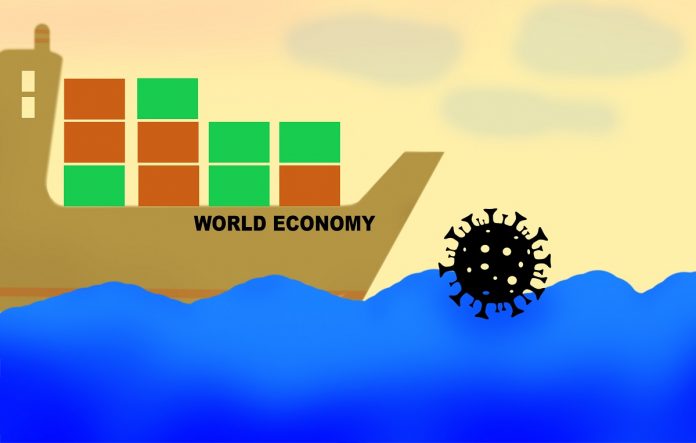As the novel coronavirus spreads across the globe, the strain on the healthcare industry is very evident and growing, as cases are being found in new countries and cities daily. Aside from healthcare, almost all other industries have been impacted significantly, with dry bulk shipping taking a major hit, and with seven out of the 10 largest container ports being located around the country of China, it is easy to see why.
As the founder of Delos Shipping, Brian Ladin of Dallas, Texas, has a solid foundation and understanding of the business and is able to understand the current short-term and long-term impacts of the Coronavirus epidemic on the dry bulk shipping industry.
Coronavirus
Coronavirus is a novel virus that is thought to have begun in late 2019 in Wuhan, China. On December 31, 2019, the World Health Organization (WHO) found that there were multiple cases of pneumonia-like illnesses in Wuhan, and that they did not match any known viruses, with China confirming the 2019-nCov (Coronavirus) on January 7, 2020.
Similar to the SARS outbreak from the early 2000s, this virus has spread rapidly around the globe, with the WHO declaring it a global health emergency. As of the time of writing, Brian Ladin reports that there have been over 42,000 confirmed cases, and over 1,000 deaths in 28 countries. With concern of contamination and human-human spread, industries such as shipping with global outreach have taken a hit. Global embassies have been working with the Chinese government to help their citizens evacuate from the city of Wuhan, which has been under quarantine for the past month.
Dry Bulk Shipping
Brian Ladin explains that dry bulk shipping refers to the movement of commodities in bulk, such as iron ore, coal, and grains-the major bulk-with minor bulk including lumbar and steel products. The industry is crucial to global business as it helps drive trade and helps to keep up a global market. The iron ore routes between China-Brazil and China-Australia itself is a billion-dollar industry and with many of the larger ports being effected, the ripple effects are beginning to be seen in all other sectors.
Baltic Dry Index
The Baltic Dry Index (BDI) is used to assess the shipping market around the world using daily sample data from a large array of international shipbrokers explains Brian Ladin. The index gives an idea of the supply and demand of shipping for that day, while giving an idea of the trending averages. While supply generally stays unchanged (due to the large amount of time needed to build a shipping vessel), it indirectly looks at demand. The BDI has fallen almost 90% since September of 2019, free falling to 415, down from 2518 just a few months ago. To put that into context, the lowest index ever seen was 290 points in February of 2016. With uncertainty about the virus, and the recent death of 97 citizens in Beijing in one day, this index may fall even further.
Manufacturing Delays
With decreased shipping of raw materials, the manufacturing center of the world is experiencing delays in getting factories opened up. While traditionally closed during this time for Chinese New Year, the closures have now been extended for a few additional weeks, with many factories being closed indefinitely. Moreover, travel during the Chinese New Year is usually high, and with many families stranded in foreign countries due to travel bans, it is becoming increasingly harder to say when many of the factories will be able to resume production. Exports will undoubtedly be affected says Brian Ladin, with deadlines and timelines having to be revisited to compensate for closures.
Blank Sailings
A blank sailing is one that was previously scheduled, but is then cancelled or one that will skip particular ports. With a decreased demand during the Chinese New Year, blank sailings had already been announced prior to the Coronavirus outbreak, however the number of blank sailings has increased in the past few weeks. This is usually done in an effort to reduce costs and increase freight prices; however, it is harder to stabilize when the entire industry is in a whirlwind downfall.
Brian Ladin on Revenue Loss
The estimated breakeven rate for “capesize bulkers” is around $15,000/day; however, in recent weeks this number as fallen to recent lows just under $4,000/day, some of the lowest seen in a few years. On average, these rates can fluctuate between $18,000-$70,000, but with companies operating in the negatives, the dry bulk shipping industry is not looking good for profits currently. Furthermore, it is also typically during this time that contracts are renegotiated, and commonly at higher rates, but with decreased demand and manufacturing delays, it will be harder to do so.
It will be a matter of waiting and seeing how long the Coronavirus continues to take a toll, and how long cities will be under quarantine for to effectively estimate the full damage of the virus on the shipping industry. For the time being, companies are scrambling to do their best to keep their profits afloat.
Find a Home-Based Business to Start-Up >>> Hundreds of Business Listings.

















































